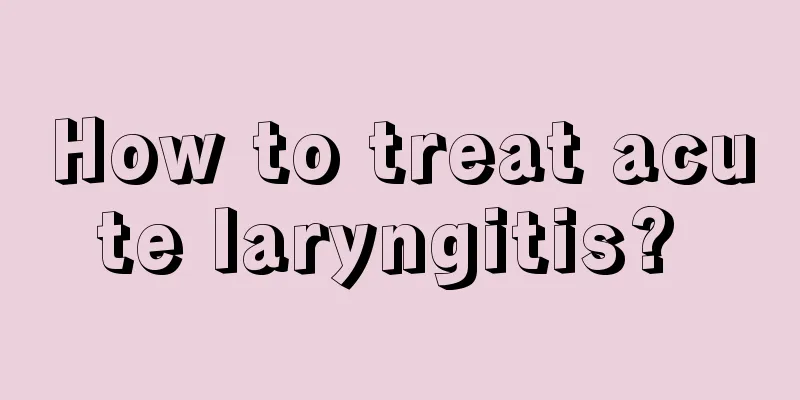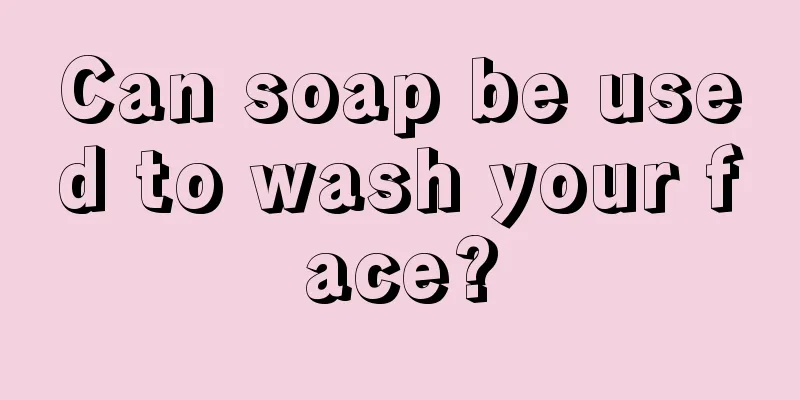How to treat acute laryngitis?

|
Acute laryngitis is a common clinical disease, which mainly occurs in the laryngeal mucosa. Many reasons may cause acute laryngitis, and its symptoms are also very obvious. Generally speaking, acute laryngitis is more common among men and children, and is more serious for children. For this type of problem, timely treatment is necessary. So how should acute laryngitis be treated? 1. Vocal cord rest (vocal rest) The most important treatment measure for acute laryngitis is to rest the vocal cords, not to make sounds or to minimize the number of times and intensity of sounds, so as to reduce vocal cord edema caused by bilateral vocal cord movement and mutual friction caused by pronunciation. We should avoid replacing normal vocalization with whispering, because whispering increases the subglottal pressure and fails to achieve the purpose of resting the vocal cords. 2. General treatment Keep indoor air circulating and moist, avoid cold and high temperature stimulation; ensure adequate sleep and rest, adjust body condition and enhance resistance; avoid dry mouth and tongue, drink plenty of water, eat a light diet, eat vegetables and fruits regularly, avoid spicy and irritating foods, and refrain from smoking and drinking. Avoid allergic foods and irritating gases. Actively treat upper respiratory tract infections and adjacent lesions such as sinusitis, pharyngitis, tracheitis, etc. 3. Antiviral and antibiotic treatment For acute laryngitis caused by viral infection, antiviral drugs can be used on the basis of general treatment, while acute laryngitis secondary to bacterial infection should be treated with oral or injected antibiotics to control inflammation in time. 4. Glucocorticoid therapy Those with obvious congestion and swelling of the vocal cords can take glucocorticoids orally or intravenously to quickly eliminate laryngeal mucosal edema and reduce the degree of hoarseness. For patients with subglottic laryngitis, oxygen should be administered and breathing should be closely monitored, and intravenous glucocorticoids should be administered in a timely manner to prevent worsening of dyspnea. 5. Ultrasonic nebulization inhalation therapy Oral nebulization inhalation therapy can be performed with an antibiotic solution containing steroid hormones, which allows the mist drug to act directly on the throat, helping to reduce inflammation and swelling, thin throat secretions, and relieve throat pain. 6. Symptomatic treatment For those with severe cough, the violent vibration of the vocal cords caused by coughing should be controlled and cough suppressants should be used. For those with more sputum, mucus-stimulating agents can be used. Throat pain can be treated with appropriate throat lozenges and local sprays. Cooperate with traditional Chinese medicine treatment, etc. |
<<: How to treat acute deafness?
>>: What to do with acute tonsillitis
Recommend
Reasons for smaller eyes
I don’t know if you have ever had this feeling: w...
Anesthesia for circumcision surgery
The foreskin is an important component of the mal...
What are the causes of pain below the left sternum?
Judging from the clinical symptoms, the pain belo...
How to remove the smell of hair-pulling medicine
Only with regular care can people's hair beco...
What are the symptoms of bile duct cancer? Six symptoms to watch out for, two preventive measures to be in place
Patients with bile duct cancer have symptoms of b...
What are the correct ways to wash your hair with tea water
For women with long hair, washing hair is a very ...
Why can't you eat in the late stage of liver cancer? You need to pay attention to these in the late stage of liver cancer
In the late stage of liver cancer, patients will ...
Can patients with heart failure be cured?
Heart failure refers to the weakening of heart fu...
Is tinning harmful to the body?
Nowadays, many people working in factories need t...
What is primary brain lymphoma and what are the treatments?
What is primary brain lymphoma? What are the trea...
Why is the poop red?
If you have children or elderly people at home an...
Do I need to take anti-inflammatory medicine before extracting my wisdom tooth that is rotten and painful?
Diseases are very common in people's daily li...
Who are the high-risk groups for esophageal cancer?
The high-risk groups for esophageal cancer mainly...
What vegetables should I eat for hyperlipidemia
As our living standards continue to improve, the ...
Bad breath is caused by stomach cold or stomach heat, understand the source of bad breath
Bad breath is mostly caused by stomach heat. In a...









